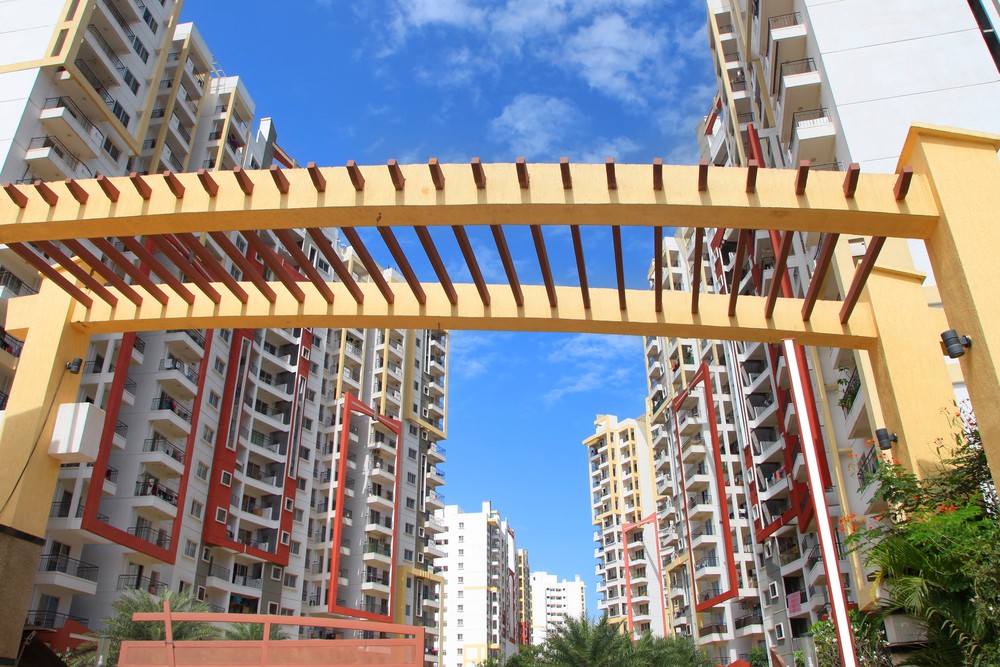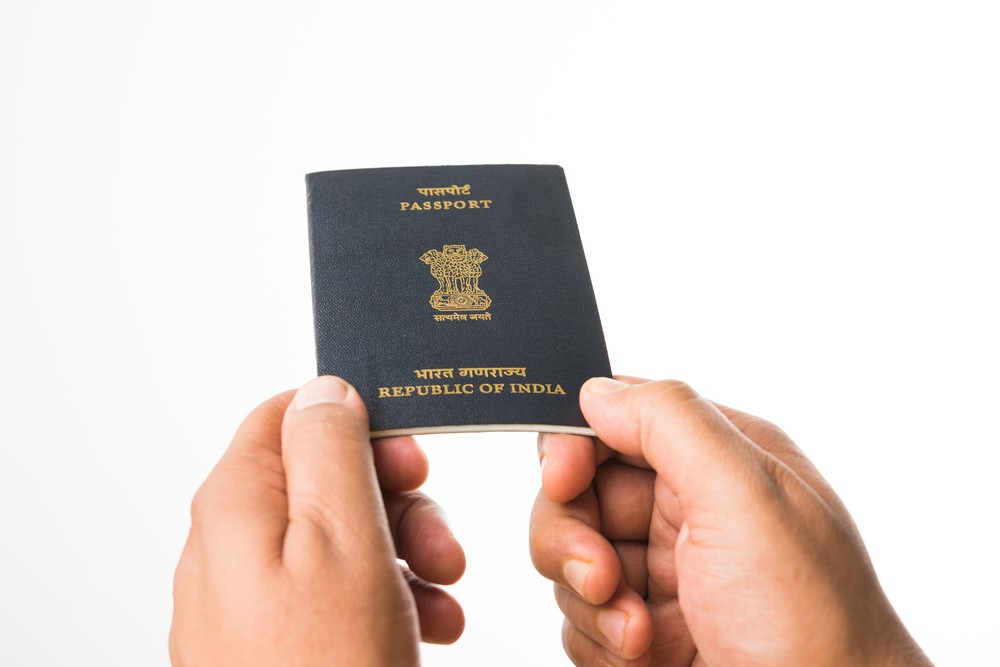Are you ready to master the NRIs Guide To Buying Property In India? As an NRI looking to invest in Indian real estate, this blog will unravel the simplified process for you, from documentation to funding, taxes, and so much more. By the end, you’ll be equipped with all the knowledge you need to make your property investment in India a breeze. Keep reading, and let’s make your property dreams in India a reality.

Things we covered for you
What property can an NRI buy in India?

According to the 2018 Foreign Exchange Management Regulations, NRIs are allowed to acquire property within India. India allows NRIs to invest in diverse residential and commercial real estate, with exceptions for agricultural properties such as farmhouses, agricultural land, and plantations. The Indian Government has placed no limits on the number of properties an NRI can procure. Nevertheless, sufficient capital in an NRI account is mandatory to acquire any property, and this includes funds received through inbound remittances.
Read: Liberalised Remittance Scheme: Eligibility, Benefits and More
Requirements for Purchase of Property by an NRI in India
Document Requirements
As an NRI, you will be required to furnish specific documents. These documents typically comprise a copy of your Indian passport and visa, your work permit from your country of residence, your most recent income tax returns, and the last six months’ payslips. Additionally, you must provide property-related documents, including the title deed and a No Objection Certificate (NOC) from the society, among others.
Empowering Through Special Power of Attorney
For NRIs who cannot physically be present in India for property transactions, there’s a legal solution known as the Power of Attorney (POA). As an NRI, you can designate a trusted individual, such as a close relative, friend, or colleague, to act on your behalf during the transaction. This appointed person will be responsible for signing agreements and handling official paperwork.
To obtain a valid POA, you must visit the Indian Embassy in your city and country of residence. Once completed, you can send the POA document to India, where it will undergo adjudication. It’s essential to instruct your designated POA to keep all required documents and forward them to you as needed.
NRE and NRO Accounts for Financial Flexibility
As an NRI, it’s advisable to maintain both NRE (Non-Resident External) and NRO (Non-Resident Ordinary) accounts in India. The NRE account allows you to transfer foreign earnings into India. Notably, the interest income from this account is tax-exempt. On the other hand, the NRO account assists in managing your Indian income sources and accepts foreign currency deposits, facilitating your property investment endeavours in India.
Documentation that an NRI needs to buy property in India

The good part is that you don’t need to show too many documents when you are looking to buy property, you’ll need a valid passport, address proof, a Permanent Account Number (PAN card) and a recent photograph.
Documents Required For NRI To Continue Ownership Of Property In India:
- Copy of the passport
- Copy of the PAN card
- Copy of the OCI/PIO card (if applicable)
- Copy of the sale deed or title deed of the property
- Copy of the latest property tax receipt
- Copy of the latest electricity bill or water bill
- A letter of authorization to a representative in India (if applicable)

Read: Navigating Form 15CA and 15CB: A Complete Guide for Foreign Remittances
Owning Properties in India as an NRI: Guidelines
As an NRI, you might be worried about what happens to your properties in India after you move abroad. Well, the good news is that you can continue to own your properties in India even after becoming an NRI. However, there are certain rules and regulations that you need to be aware of.
Steps To Follow To Continue Ownership Of Property In India:
- Get all the necessary documents ready.
- Inform the builder or society about your NRI status and provide them with the required documents.
- Appoint a representative in India, who can act on your behalf, in case of any legal matters related to the property.
- Ensure that the property tax and utility bills are paid on time.
- If you plan to sell the property, you need to be aware of the tax implications of the purchase of property by NRI in India.
Joint ownership of property in India
An NRI can buy property in their own name or jointly with any other NRI. The property cannot be in joint ownership with a resident Indian or with those who are otherwise not allowed to buy property in India.
NRI property tax for Indian Property
NRIs and resident Indians have different tax systems they have to follow. So, NRIs who buy property have to deduct Income Tax at 1% if the value of the property is more than 50 lakhs and this amount has to be paid to the Income Tax Department. But, if you’re buying this property from another NRI this rate is much higher. If the property is for self-use and is financed through a home loan, the interest paid on the loan is deductible from the NRI’s total taxable income. The deductible amount is capped at Rs.1.5 lakhs and NRIs can also get tax deduction benefits on the repayment of the loan.
Read: How to Choose the Top 10 Cities in India 2024 to Invest in For NRIs

If the property is not for self-use but to earn rental income, then also NRIs can deduct the interest on the loan from their taxable income but with no maximum limit of Rs.1.5 lakhs. NRIs can also use house tax as a deduction on their taxes. It’s also important to note that 30% of rental income is allowed as a standard deduction for repairs, irrespective of the repairs were carried out.
Tax Implications For NRI Buying Property In India:
If you are an NRI and want to purchase a property in India, you need to be aware of the tax implications.
- As per the Income Tax Act, 1961, an NRI buying property in India is subject to TDS (Tax Deducted at Source) at the rate of 20%.
- The TDS is calculated on the total value of the property and includes the cost of amenities, parking, and any other charges.
- However, if the property value is less than Rs. 50 lakhs, the TDS rate is 1%.
- To avoid TDS for NRI buying property in India, you can apply for a certificate of lower deduction or exemption from TDS.
Tax Deductions for NRI Property Sales in India
It is important to know how much TDS on the sale of property by NRI in India where the calculation of TDS (or the tax deducted at source) is done at 20.6% on LTCG (long-term capital gains) and 30.9% on STCG (short-term capital gains). That said, the final rate for both Indian residents and NRIs will not be that dissimilar. For instance, an NRI with a lower tax slab will be able to apply for the refund of the TDS as well, provided his/her income tax returns are filed to qualify.
Funds Repatriation Back to Home Country Abroad
You should be aware of some guidelines in regards to funds repatriation back to your home country abroad if you are an NRI. As a person of Indian origin or PIO, you are allowed to repatriate the gains from any immovable property sale, given the conditions below are met:
- You should purchase the property as per FEMA’s directions that apply at the time of buying
- The amount that you will repatriate cannot be more than the amount that you originally paid for the property, in case the same was purchased through a foreign exchange or any funds that you may hold in an FCNR (B) or Foreign Currency Non-Resident (Bank) accounts
That said, you can repatriate a maximum of USD 1 million every fiscal year:
- If the property was bought from any INR source of funds
- If the property was received as a gift
- If the property was an inheritance
Note that in all of these points, you will have to provide proof as prescribed by RBI guidelines and the Central Board of Direct Taxes CBDT.
How NRIs can pay for the property they buy in India?
NRIs now have the option to secure a home loan for purchasing residential property in India. The RBI has granted approval to registered banks and housing finance institutions to provide these loans. All transactions must be conducted in Indian currency. The disbursed loan amount cannot be credited directly to the NRI’s bank account but will be directed to the seller’s or developer’s account. Repayment can be facilitated through an NRI’s NRO/NRE account or FCNR deposits.
If an NRI is making a part or full payment without a home loan, then they can do so by remitting the money through authorised banking channels from abroad. They can also use money in their NRE/NRO or FCNR accounts. Traveller’s cheques or foreign currency is not an acceptable means of payment.
Home loans can be paid by using the funds in the NRO account, remitting money through banking channels, or even from the rent earned after subletting the property.
NoBroker Special Additional Services for NRIs Looking to Buy Property in India
Buying property without being present in the same country can be very risky, this is why NoBroker has introduced special services so that you have complete peace of mind while purchasing your property. All these services come at very pocket-friendly prices.
1- Dedicated Relationship Manager – the relationship manager will look for relevant properties that match your requirements. We keep you updated about the progress through email and WhatsApp at your convenience.
2- Property Verification – Make sure the property has a clear marketable title, has all the necessary approvals/NOCs and is free from liens and litigations.
3- Home Inspection – Get the property thoroughly examined in all aspects including civil, electrical, plumbing, sanitation and safety issues of the property for defects and inconsistencies.
4- Sales Deed – We will give you full assistance in getting the Sales Deed.
Read: Exclusive Services For NRI Home Owners
To know more about these services and more do visit our website www.nobroker.in we’re happy to answer any queries you might have about buying a property in India as an NRI.
In conclusion, buying property in India is very easy for NRIs. If you have clear documentation and get your home loan sorted, NoBroker can help you with everything else. Click below to find out more.
FAQ’s
Yes, NRIs are allowed to purchase agricultural land in India, subject to certain conditions and regulations. It’s important to be aware of the specific rules governing NRI agricultural land purchases to ensure compliance.
NRIs have the option to buy property in India in their parents’ name. However, understanding the legalities and regulations surrounding such transactions is crucial. Seek guidance to navigate the process smoothly.
Yes, there are specific rules and regulations governing NRI land purchases in India. If NRIs buy property in India, they need to familiarise themselves with these guidelines to ensure a seamless and compliant property acquisition process.
Real estate NRI buyers should consider factors such as legal documentation, tax implications, and compliance with local regulations. Seeking advice from legal and real estate professionals is advisable for a well-informed decision.
Yes, foreigners, including NRIs, can buy property in India. Understanding the specific procedures, legal requirements, and documentation involved is essential. It’s crucial for NRI property buyers to be well-informed about the steps and regulations for a successful purchase.











Way cool! Some extremely valid points! I appreciate you writing this post and the rest of the website is very good.
Very informative article. Thanks for providing the information.
Wow, amazingly explained. you really did great work. You have covered so many insights in this post. Great blog post!